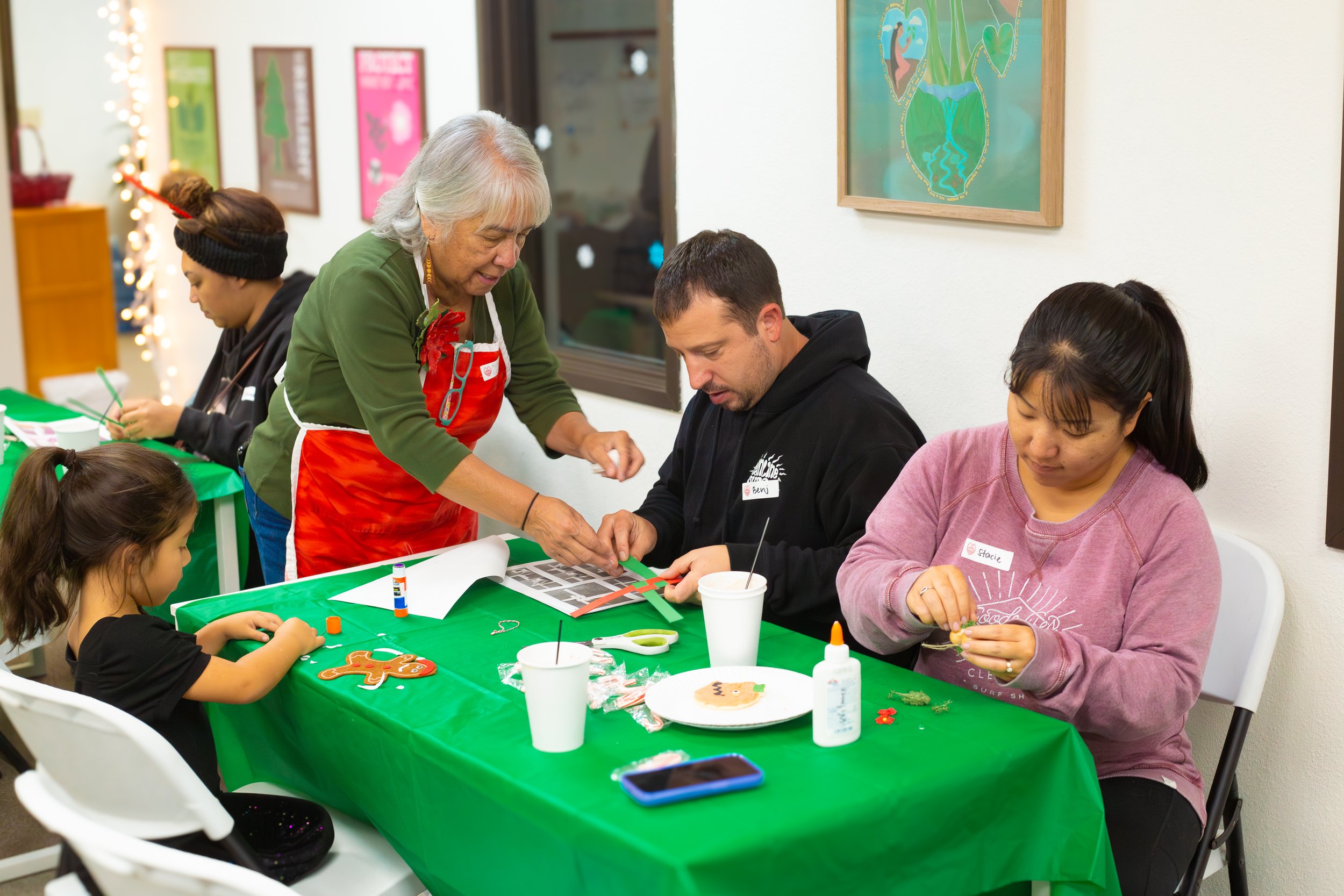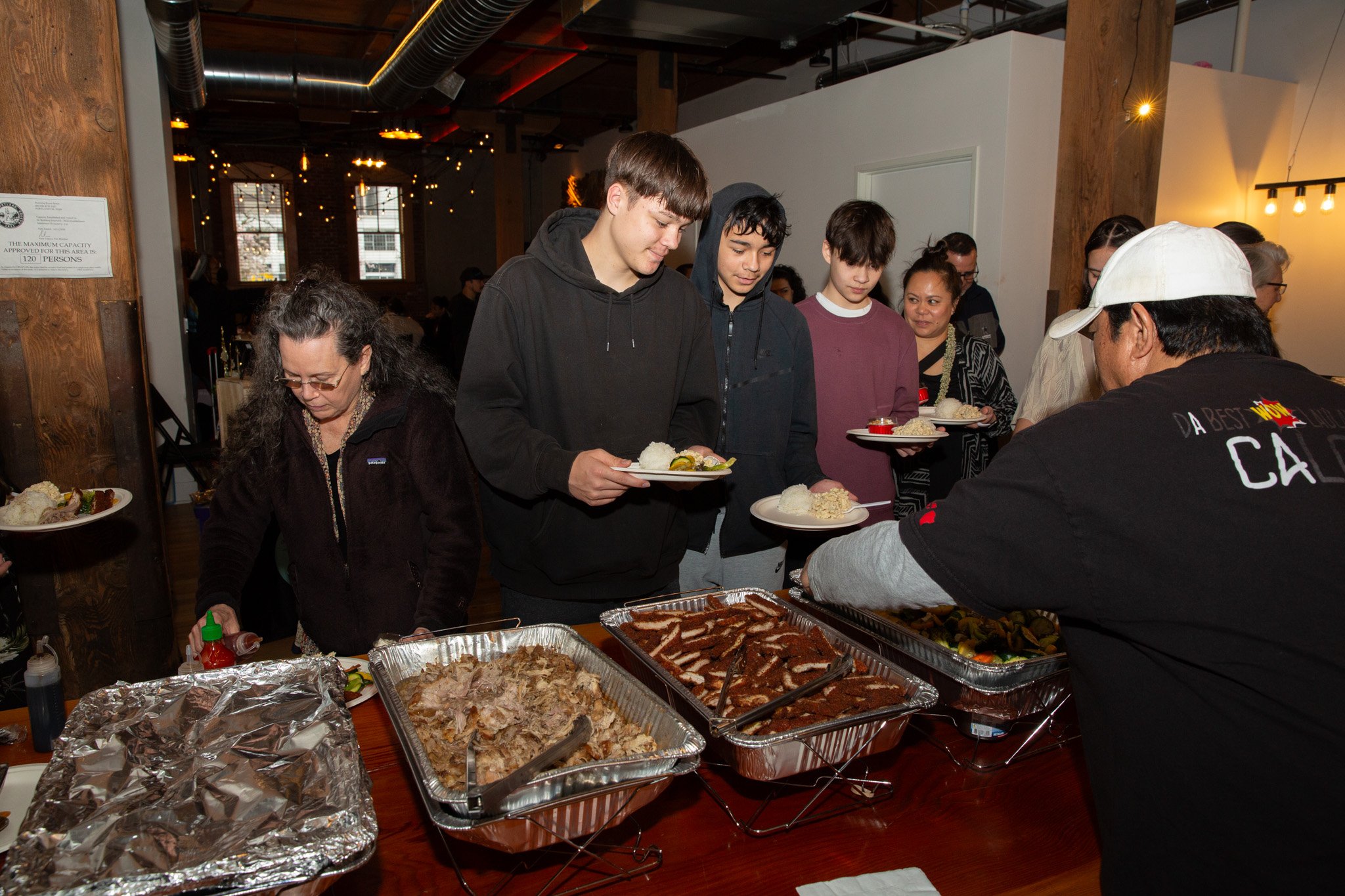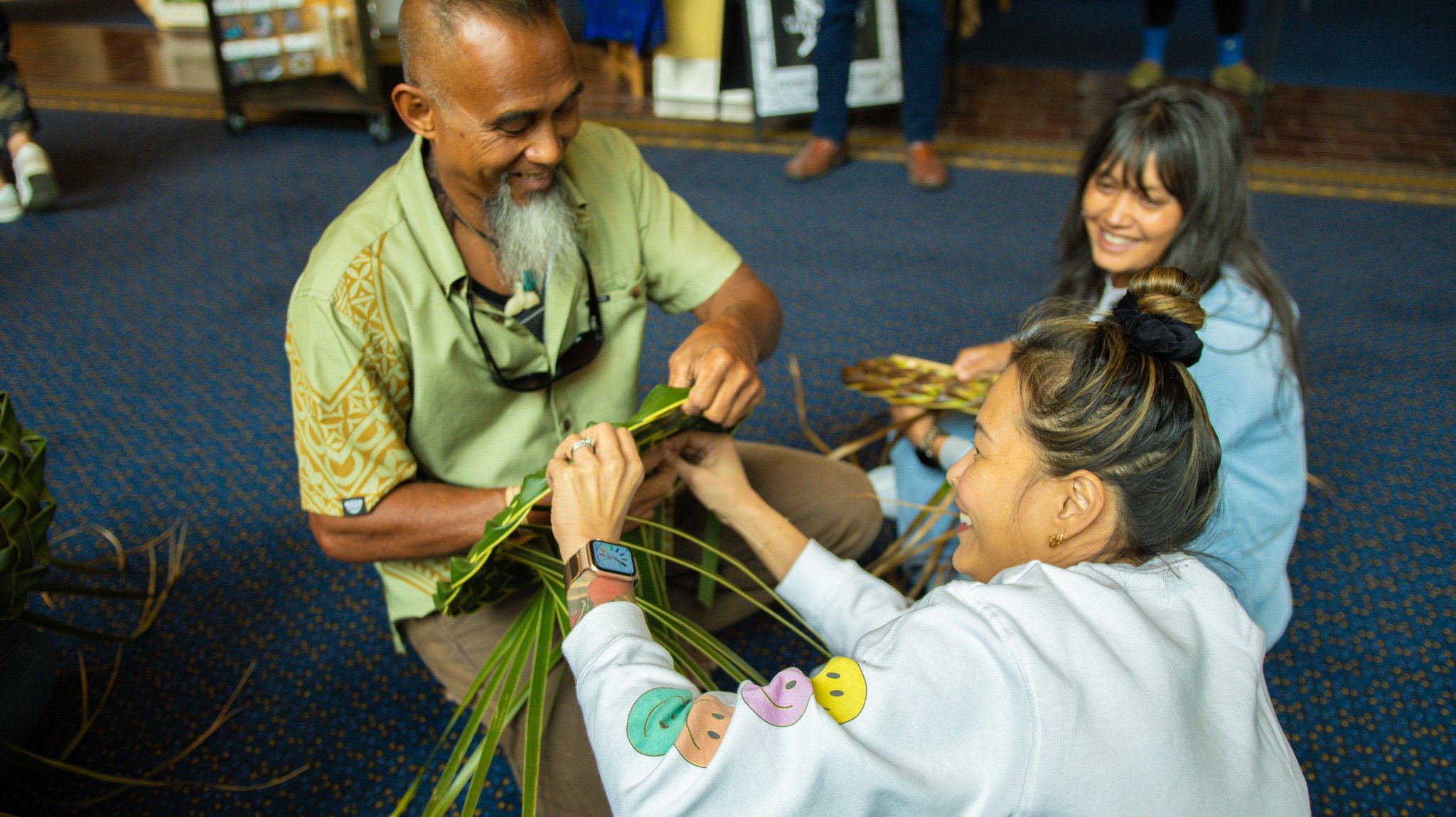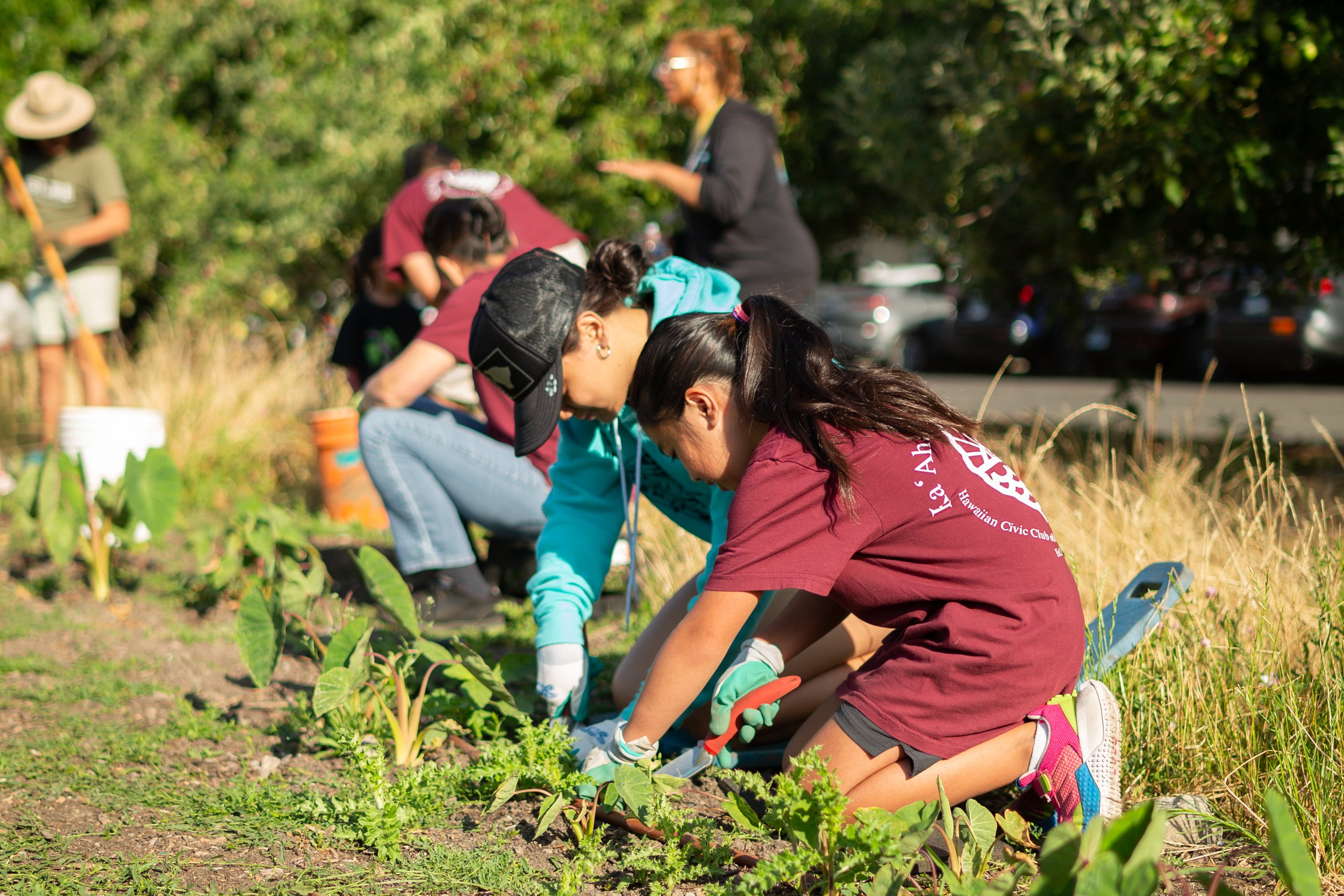Established in 2019, Ka ʻAha Lāhui O ʻOlekona Hawaiian Civic Club of Oregon & SW Washington, or KALO HCC, is a 501(c)3 organization that works to bring awareness to the importance of kalo (taro) and Hāloa (first Hawaiian) in remembrance of our Native Hawaiian communities back home and on the continent – thus, creating an opportunity to reindigenize and reconnect our lāhui (people) to the ʻāina (land) and moʻomēheu (cultural identity and values).
In 2019, KALO HCC was chartered by the Association of Hawaiian Civic Clubs, whom was founded by Prince Jonah Kūhiō Kalanianaʻole in 1918. Also chartered by the AOHCC, Na Lei Makalapua (Mainland Council) received jurisdiction over the Hawaiian Civic Clubs recognized in the Continental U.S. and Alaska.
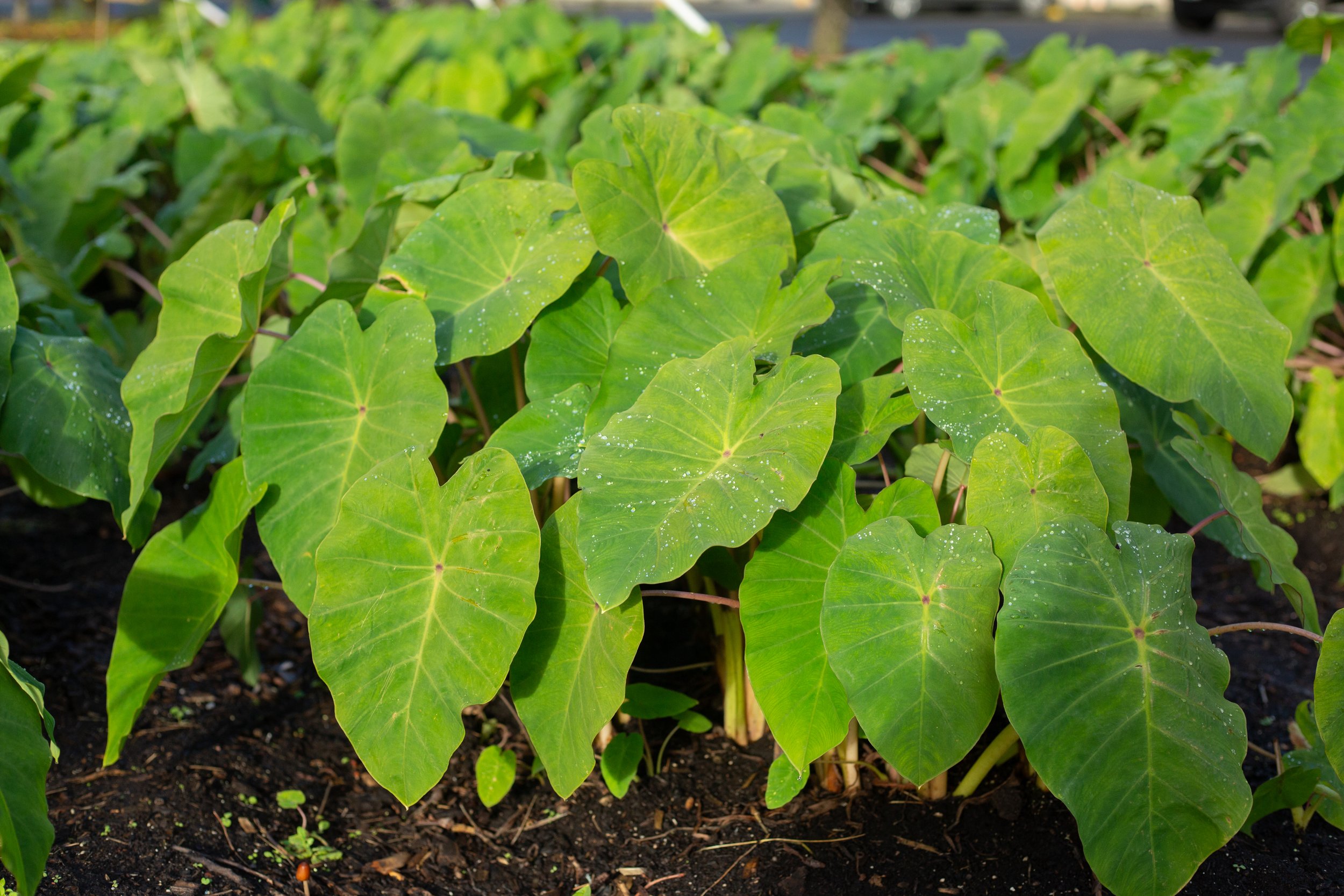
Ke Ala Nuʻukia – Mission
To actively participate in the promotion, perpetuation and practice of the Native Hawaiian culture and values.
Ka Nuʻukia – Vision
To advocate and elevate the voices of our Native Hawaiian and Pacific Islander communities through cultural practices and educational opportunities.
To initiate change through education, collaboration and unity.
Ka Mākia – Motto
Maikaʻi ke kalo i ka ʻohā (ʻŌlelo Noeʻau #1232) means, “The goodness of the taro is judged by the young plant it produces”. Through the lens of our kupuna, KALO HCC will continue to kūkulu (build) the kāhua (foundation so that we may all strive as ʻohana.
-
Established in 1918, the Hawaiian Civic Club movement stands as the first and oldest Native Hawaiian community-oriented advocacy initiatives. As a non-profit organization, the Association of Hawaiian Civic Clubs serves as a coalition of independent Hawaiian Civic Clubs situated throughout Hawai‘i and the Continent. There are five primary councils: Moku o Keawe (Hawai‘i Council), Nā Hono A‘o Pi‘ilani (Maui Council), Ke One o Kākuhihewa (O‘ahu Council), Moku o Manokalanipō (Kaua‘i Council), and Nā Lei Makalapua (Mainland Council).
To read more, please visit aohcc.org.
-
Founder of the Association of Hawaiian Civic Clubs
In 1903, Prince Kūhiō re-established the Royal Order of Kamehameha and served as Aliʻi Ai Moku until his death in 1922. In 1918, he helped firm the first Hawaiian Civic Club with efforts to further perpetuate and rehabilitate the Hawaiian people and our culture.As the second Delegate from Hawaiʻi, Kūhiō won federal funds for infrastructure improvements and paid homage to his Hawaiian heritage through the Hawaiian Homes Commissions Act.
For more information, see here!
-
Nā Lei Makalapua (Mainland Council) has jurisdiction over the Hawaiian Civic Clubs chartered in the continental US and Alaska. The Council has two Moku (districts) one includes Alaska, Western and Intermountain States and the 2nd includes Central and Eastern States.
Each Moku has a Kalaimoku (Director) who is available for guidance, support and assistance for the clubs within its district. Nā Lei Makalapua represents the mainland clubs on the AHCC Board of Directors to advocate for our clubs and include our mana’o (wisdom) with the decisions being made at the national Association level.
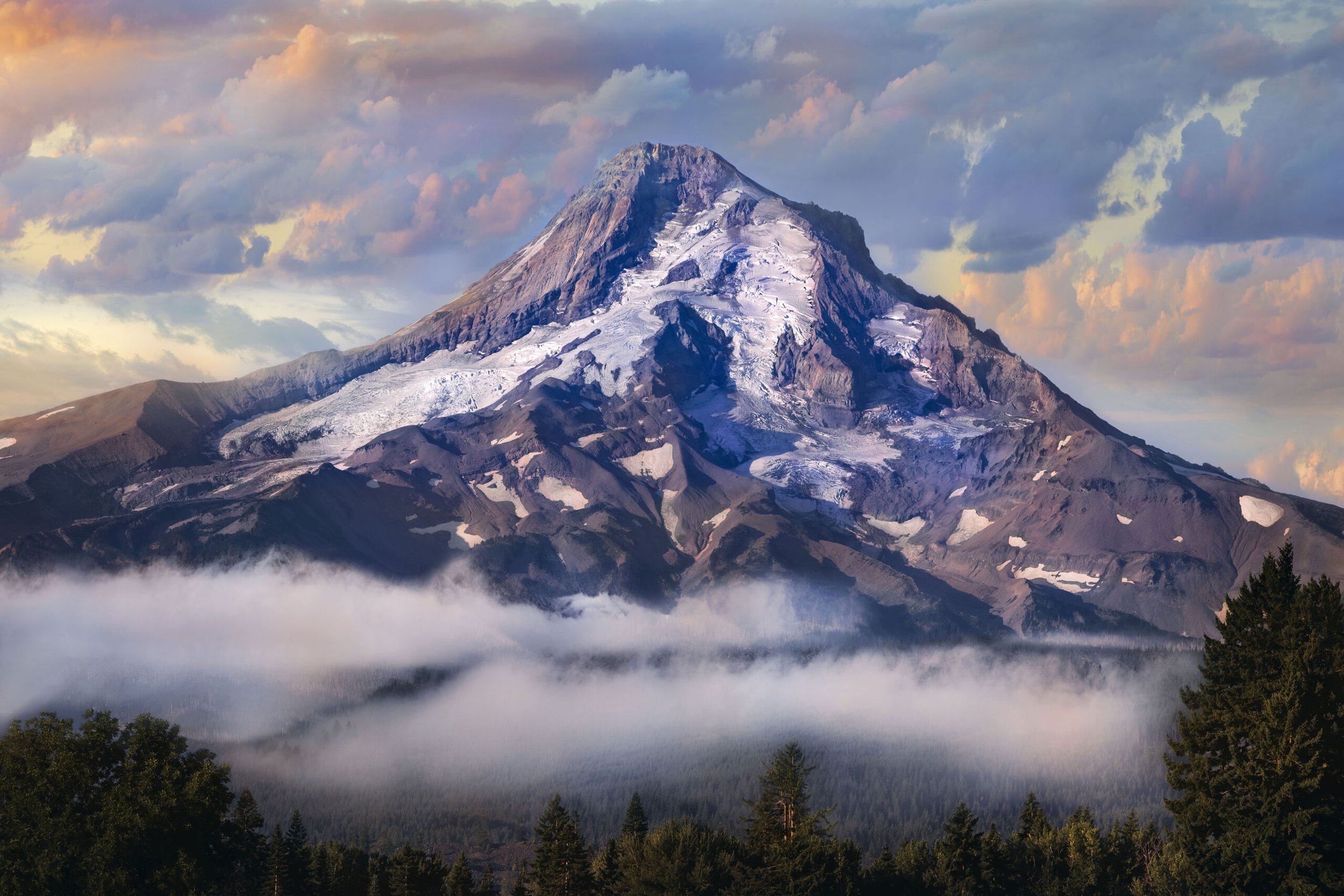
Land Acknowledgement
KALO is currently located in what is now called, Beaverton, Oregon. As kanaka ʻōiwi living on the continent, we would like to acknowledge the land that we currently occupy and stand on. We honor the traditions and culture of the Kalapuya tribe, the Confederated Tribes of Siletz Indians, the Confederated Tribes of Grand Ronde Cayuse, Umatilla, and Walla Walla, and many more Indigenous communities who are the original caretakers of the land. It is important to recognize that while Pacific Islanders remain Indigenous in our own ways and in our own homelands, we are all simply visitors here. As a community-based organization, the mission and values of KALO works to preserve Indigineity within ourselves and with the people around us. It is an honor and privilege to share this space with our ʻohana as their legacies continues to live on.
Mahalo nui loa for your continued contribution to our community and the society at large.



